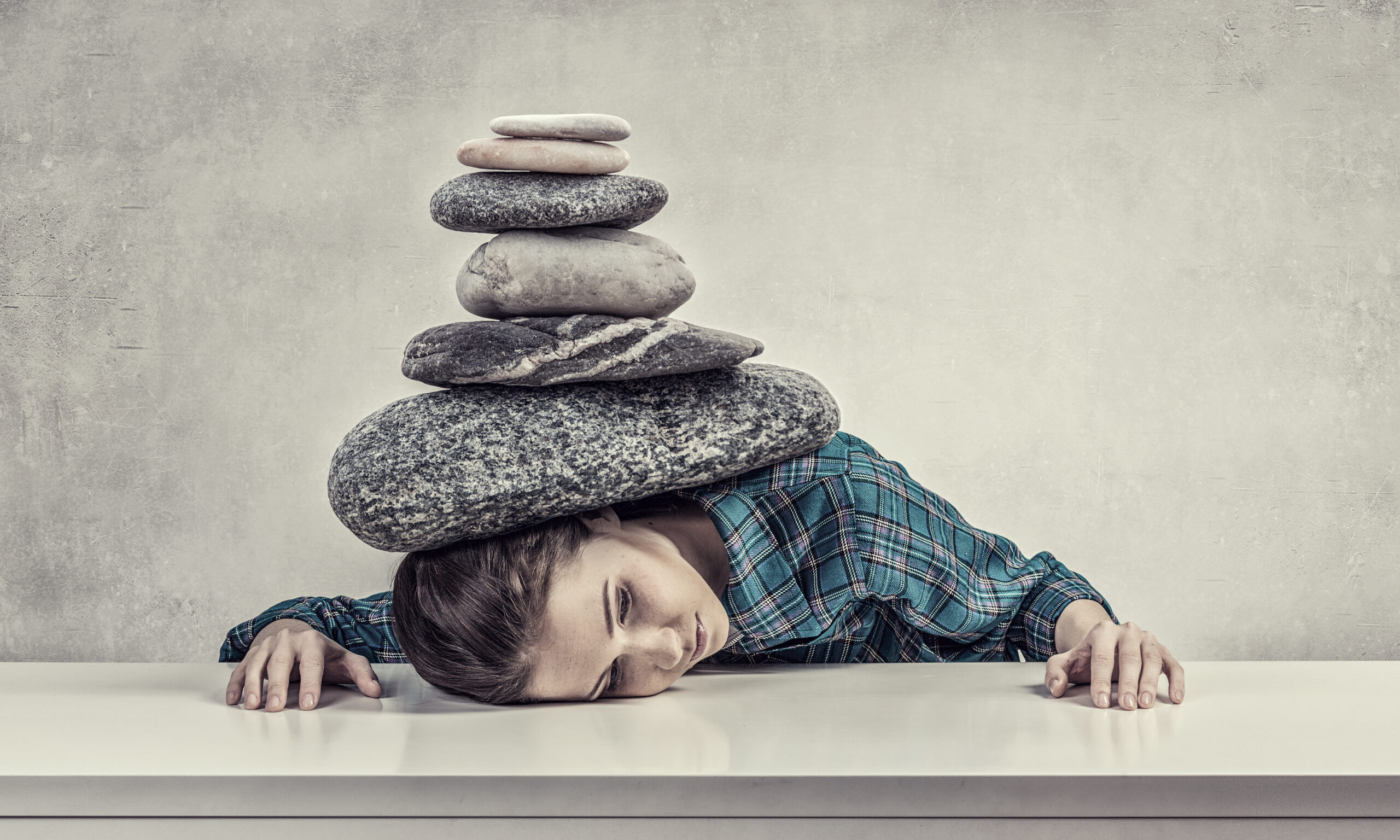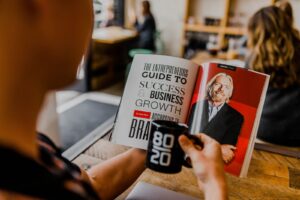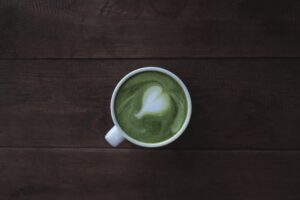“If life’s journey is endless…where is its goal? The answer is – everywhere.” – Rabindranath Tagore
This has become the era of the “Great Exhaustion,” widely reported by publications like the Wall Street Journal, New Yorker, and Time Magazine. The problem is written about often, but where are the solutions? This question echoes through boardrooms, classrooms, and living rooms alike.
This may sound like the ideal entry point for an influencer hocking lion’s mane extract – so rejuvenating, right? WRONG. Your social media scroll is fueling your fatigue.
The commercialization of self-care isn’t doing us any favors either—those over-the-top morning routines on TikTok and the endless checklist of things to do to live longer, look better, and perform at your peak can backfire. Instead of creating space to pause and recharge, self-care becomes just another task on your to-do list—more hustle than healing. I’ve definitely fallen into this trap myself—the kind where “self-care” turns into a pressure-packed checklist instead of something that actually helps you breathe. When every moment of rest needs to be optimized, it stops being restorative and starts feeling like just another item on the agenda.
But we can’t just blame the Gram (or the Tok). It’s a lot bigger of a picture when we are really looking at this from a mental wellness picture.
In this article, I’m not handing you a one-size-fits-all solution—because let’s be real, those rarely work. Instead, I’m sharing a few practical strategies that have helped me and others in high-pressure roles, so you can pick what actually feels doable and fits your life, not someone else’s highlight reel.

Why are we “exhausted?”
Burnout is nothing new. The term “Great Exhaustion” was coined by psychologist Herbert Freudenberger in 1974. So why is everyone talking about it now, all of a sudden?
Contemporary Western life has, for decades, required anyone functioning in modern society to take on an octopus-like existence. We have to direct our attention to competing priorities – demanding jobs, essential familial caregiving, social gatherings, and fulfilling political and community engagements. With the rapid advancement of technology in recent years, this system is gummed up by so many distractions. Breaking news. Scrolling through social media. Never-ending emails, texts, slacks, instant messages, and conference calls. Talking heads and pundits. Opinions and opinions on opinions. Ca caw, ca caw.

The New Yorker summarized the state of affairs best:
There no longer seems to be a revolutionary project roiling the knowledge sector. Office workers seem to have retreated into a pervasive atmosphere of fatigue. “I am tired of meetings, brainstorming, expectations, dealing with people, figuring out never-ending problems.” The most notable change of these tumultuous years, the ability to spend more time working from home, hasn’t been a cure-all. Something’s still wrong, above and beyond the usual challenges of office life. Everyone’s tired. What started with the Great Resignation has become the Great Exhaustion.
New Yorker Magazine
Therefore, exhaustion is more than physical. Sure, we can get physically tired, but tired can often be associated with something positive, like the tired you feel after accomplishing a significant goal, finishing a good workout, or having an amazing vacation. The exhaustion caused by the “mental load” is what is goading a collective desire to shed the emotional weight – that is, if we aren’t too tired.

How to reverse the exhaustion trend
The main struggle “Type A” workers face is expecting to be “up” all the time. If that doesn’t happen, and there is a more low-vibration day, alarm bells sound. Something is wrong. Why am I not killing it? Why am I not up?
This is ironically a recipe for exhaustion itself. It’s not possible to be “up” 24/7. Think about the last time you had a really good day. Didn’t everything just seem to fall into place, like synchronized green lights on an empty street? On the other hand, a really bad day can seem like walking around with a dark cloud that won’t go away.

The same principle applies to energy and drive. There will be highs and lows. The key is to not perpetually elevate your drive but to elevate your baseline with certain actions and habits. This way, the highs will be higher, and while lows will still happen, they will have a higher bottom.
Below are some specific strategies that can help you elevate your vibration. If 2023 was the year of the great elevation, 2024 can still be the year of the Great Elevation.
Top “Anti-Exhaust” Tips
- Identify Passion Projects: Connect your personal interests with your professional skills to find passion projects that reignite your motivation.
- Prioritize Sleep: You won’t feel rested if you don’t get enough of it – and it is really important how you wind down beforehand.
- Embrace Daydreaming: Allow your mind to wander freely as a form of meditation, unlocking creativity and reducing mental fatigue.
- Harness Confidence with ‘Dopamine Dressing’: Boost your confidence by dressing in clothes that make you feel good, enhancing your posture and nonverbal communication.
- Embrace Uncertainty: Let go of the need for constant updates and control, finding peace in accepting uncertainty and trusting in the flow of life.
- Optimize Nutrition for Energy: Prioritize balanced nutrition, especially protein, to fuel your body and prevent stress-induced fatigue.
- Find Solace in Music: Use music to uplift your mood, drown out negativity, and rejuvenate your spirit.
- Prioritize Movement: Engage in activities that bring you joy and movement, fostering a mind-body connection and boosting energy levels.

Say goodbye to yesterday (or the day we never knew)
When I look back at that time before March 2020, what stands out is that no one really questioned their sense of purpose so transparently. There was no line to tow around coming “back” to the office. We (traditional workers) had a purpose that got us out of bed every morning. We need to get to work on time! We know our boss will probably be looking for us around 9:30. Better be there when they pop their head in…and be on time for the team meeting in a conference room. Catch that early morning flight so we can be at the client’s afternoon meeting and then go to the hotel and check-in before dinner. Go, go, go. Run on pure adrenaline. Move fast and break things.
Even for those of us who go back to the office on a hybrid or full-time schedule, life as we knew it slipped away four years ago. A recent Time Magazine article opening with this somber observation called it “pandemic grief.” We are mourning a version of life that we will never get back. Sure, life wasn’t perfect, but it seemed a heck of a lot easier to handle. It’s not just about returning to all the activities we used to do before; it is more about returning to our former collective conscience, one that was filled with more hope and excitement for what was ahead (omg, it was going to be 2020!). The hybridity of it all can create even more anxiety, as evidenced by this recent McKinsey report describing how hybrid work employees can experience almost THREE times as much burnout because of not having a clear roadmap for the future of work.

There is a saying about the past – if you look in the rearview mirror too long, you will crash. This may be true, but suppression is depression. We have a right to miss that life. And so the answer is somewhere in the middle – look back, but don’t stare. Appreciate it for what it was and that you got to live it for several, if not many years. If you feel like getting older is unfair, then remember how lucky you were to be old enough to remember most of your life that way.

Drop the rock
The first thing a new CEO does when they step into a role is assess what programs or priorities don’t make sense anymore. The same strategy applies to renewal – you, as the CEO of your mind and body, need to make a list of things you are needlessly holding onto. This is best illustrated by an ancient Buddhist teaching:
Ajahn Chah points to a big boulder and asks a disciple, “See that large rock over there?”
“Yes,” says the disciple.
“Do you think it’s heavy?” continues Ajahn Chah.
“Yes, it’s very heavy!” replies the student.
“Well… it’s not heavy if you don’t pick it up!” smiles Ajahn Chah.
This story is a metaphor for the huge boulders we carry around on our shoulders. You can look at all the individual parts like a big boulder, or you can look at it like the sum of a number of rocks. Looking at each individual rock and deciding whether you can drop it is a first step toward shedding the spiritual weight.
Those “rocks” fall into three categories – people, places, and things. First, drop the people who are really not adding value to your life. This sounds harsh, but if someone else isn’t making the effort you are making, or is always complaining, being toxic, or negative, you don’t need to take on their mental load. Other rocks you can drop include unnecessary subscriptions, clothes, and obligatory social commitments. You can drop rocks at work by drawing boundaries, not investing your time in projects that won’t add value to the company or your career, and not letting yourself get distracted by every single ankle-biter that gets in the way of our priorities. I have written about this in the DAO of Getting things done.
Sleep on
Don't you notice that you feel lighter and problems don't seem so big after a good night's sleep?
I have an entire post devoted to how to fight fatigue with good sleep:
Remember your dream
Find a passion project relatable to your career. How? Take the time to reflect on your interests, hobbies, and areas of expertise outside of your professional domain. What activities ignite a spark within you? What topics or causes are you deeply passionate about? By identifying these passions, you can begin to envision potential projects that merge your personal interests with your professional skills.
For example, imagine you're a marketing executive with a love for photography. Instead of relegating your photography hobby to weekends and vacations, why not integrate it into your professional life? You could volunteer to lead the company's social media campaign, utilizing your photography skills to capture compelling images that resonate with your target audience. Not only would this project reignite your passion for photography, but it would also enhance your value as a marketer within the organization.
For me, my love of writing and knowledge management literally bridged the gap between my passion for fitness and my day job. Knowledge management combined with storytelling is what gives me purpose, both in my career and in my life.
Take the time to reflect on your interests, hobbies, and areas of expertise outside of your professional domain. What activities ignite a spark within you? It does not even have to be something that you are even good at, as this article on cake decorating shows, it is a huge creative outlet to allow yourself to bake a messy cake.

Remember to daydream
Daydreaming is a form of meditation. Meditation is often associated with conscious silence, but that is a misconception. Mental exhaustion is like overeating - if you have extra negative, worrying thoughts, like extra calories, these need to be stored as fat. Except, this is “mental fat” - in the form of exhaustion and anxiety.
I highly recommend meditation, but daydreaming is like training wheels for that. Look at the office window, the airplane or car window and just let your mind run wild. This act of daydreaming will not only release endorphins, but it will also detach you from your current obsession over the more practical and mundane things that can spiral into unproductive worrying. Take a minute or two and let your mind be the movie that you star in with a soundtrack and everything. Ironically, this can make you more productive. The creativity needed for a daydream can unlock a mental block regarding a problem that could not be solved or a great idea for your next big project.
Engage in ‘dopamine dressing’
According to Prof. Carolyn Mair PhD, a behavioral psychologist and author of The Psychology of Fashion, “When we feel good in what we are wearing, we tend to be more confident,” “When we are confident, we are able to exert influence through our confidence alone. When we feel good, we are likely to be perceived as looking good too, as our posture, voice and other nonverbal aspects will be more positive.”
This phenomenon is also known as "enclothed cognition". It is scientifically proven that our outlook, emotions, and behavior including productivity are influenced by our clothes. Wearing certain clothes can even actually make you smarter—at least temporarily. A Journal of experimental sociology study on "enclothed cognition" found that participants who wore a lab coat described as a doctor’s coat showed significantly better attention and focus, but only when the coat was physically worn and linked to its symbolic meaning of intelligence and precision.
For me, my coat is a slamming outfit that I just have to take a selfie in. But you do you boo.

If you don't get ready to have a productive day, you won't have as productive a day if you stay in your sweats that you slept in the night before. Even if you are working from home, make an effort to get ready as if you were not.
According to Mair, our clothes are our second skin, and it’s not purely how we feel when we’re wearing them that makes a difference.
If you hit up my Instagram, you might have gathered I am a bit of a clotheshorse. It’s not really the clothes themselves, though, it’s how they make me feel. And upon further research, I discovered that this is actually supported by science!
Remember one of the most iconic montages in the “Devil Wears Prada,” where Andy (Anne Hathaway) prances around New York City in designer clothes while “Vogue” plays in the background? Well - you will now! This could so be you, in your head.
The Devil wears Prada I Vogue scene
Be comfortable not knowing
We are dominated by a need for predictability and constant updates. When is my coffee order going to be ready? When is the next train, and what station is it at now? What is the weather exactly in the next 20 minutes? What will the weather be 3 weeks from now in Spain? There is breaking news - what is it? What once was an acceptable mystery now is a threat of uncertainty.
It can get EXHAUSTING to have to keep up with every update and try to control every situation with information. Some of the best advice I ever got was, “There are only two things you need to know to be at peace. One - there is a God. Two - it’s not you.”
Whether it be a God, higher power or universe, no matter what you do to arrange all of the pieces on the chessboard perfectly, something will inevitably happen to knock them all over or checkmate your best-laid plans. Practice being “uncertain.” Don’t Google something you can’t remember - just wait - the answer will come. Don’t read ahead. Listen to the radio so you don’t know what song is going to come next. The thrill of your favorite song coming on at just the right moment is something everyone should experience.

Eat more food, especially protein
One of the problems I have sought to tackle with my blog is the overabundance of information on what/how much to eat and how it causes unnecessary anxiety. Everything is “inflammatory” or cancerous. We have to avoid processed carbs and FODMAPs at all costs. Social media is saturated with “what I ate in a day” influencers. But the recipe for a good meal is as simple as P,F, C - and I wrote an article about this. You don't have to get fancy with impossible to follow recipes.
The opposite approach may be just the ticket here, especially if you are banging your head against the wall because you are working out and eating “right” but not seeing results. If you are stuck here you can read my article on this:
As this article in Tiny Buddha Magazine explains, your body produces a stress response, i.e., cortisol, if it perceives you are not getting enough nutrients. This can happen from undereating or chronic grazing. Teasing your body to appreciate some food but then denying it the sense of “fullness” wreaks havoc on your gut and microbiome. The best way to maximize fullness is eating protein, fiber, and fat, which I describe more in my article here:
Listen to more music
I actually learned this tip from one of the partners at my firm, who heads up one of the largest capital markets practices. The right song can elevate your mood, energize you, and bring back memories of good times. Moreover, music just drowns out the “ca cawing” - the talking heads, the people who doubt you, your inner critic that never seems to take a vacation.

Focus on movement, not working out
There is no “one size fits all” workout. The right workout for you is the one that gives you “joyful movement.” For me, it’s yoga and barre. For many of my friends, it’s running. It could be Zumba, weight lifting, pickleball, basketball, hiking, or even just walking to run errands. Whatever it is, just move. Any kind of movement connects your mind and body and that synergy creates energy. The worst thing that really makes us exhausted is sitting for hours on end, not moving. Even if you are working, get a standing desk or practice “Zoom walking” - and you can read my article about that
More resources
- 5 Reasons Why You're ALWAYS Tired
- McKinsey & Company: https://www.mckinsey.com/capabilities/people-and-organizational-performance/our-insights/five-fifty-the-great-exhaustion
- The New Yorker: https://www.newyorker.com/culture/2023-in-review/an-exhausting-year-in-and-out-of-the-office
- USA Today: https://www.usatoday.com/story/life/food-dining/2024/02/29/cake-decorations-ideas-change/72673101007/
- Tiny Buddha: https://tinybuddha.com/blog/how-i-broke-free-from-burnout-by-eating-more/
- Mockingbird: https://mbird.com/sleep/a-survival-guide-to-the-great-exhaustion/






